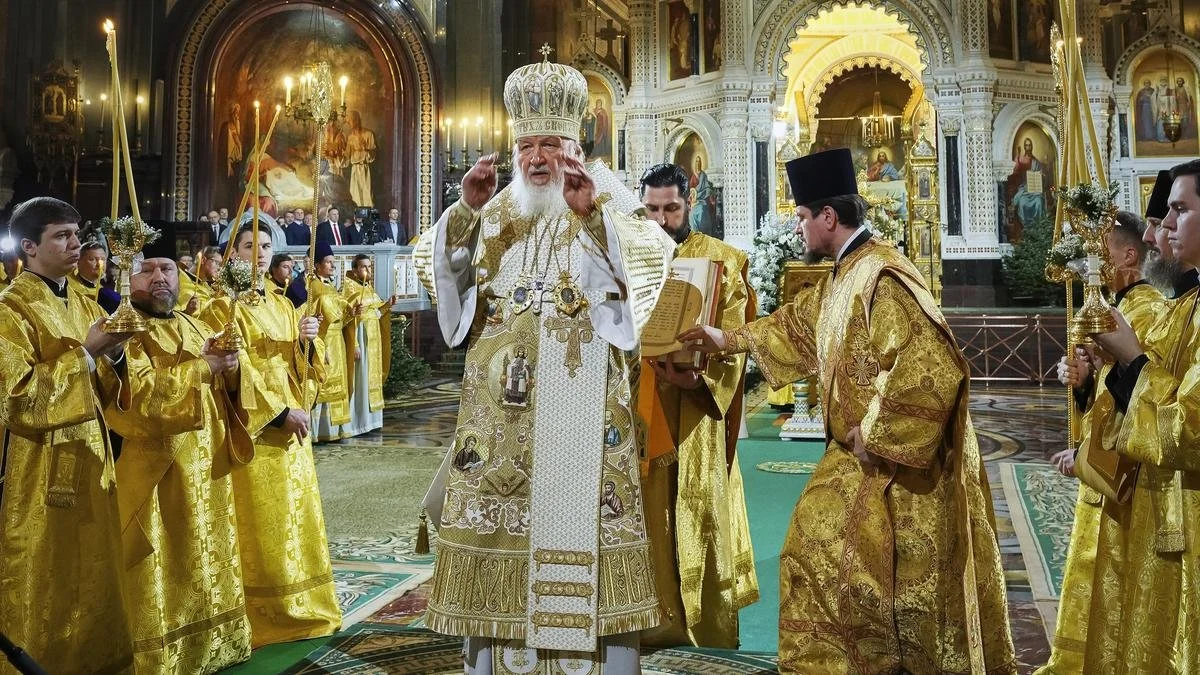The Hidden War - How a Religious Schism Shapes the War in Ukraine
Since Russia’s full-scale invasion of Ukraine in 2022, there has been a hidden war which most Western media have failed to report on. The split between theUkrainian Orthodox Church (UOC-MP), loyal to the Moscow Patriarch, and the Orthodox Church of Ukraine (OCU) may sound like a scene out of Monty Python’s Life of Brian - essentially a split within a split - but it in fact cuts to the core of the Russia-Ukraine War.
When the OCU elected a new Ukrainian Patriarch, a deep rift emerged withinthe Orthodox Community. In 2018, this was formalised, with Constantinople granting “Autocephaly” status to the new OCU.
Many parishes in Ukraine, however, remained in the old status quo as self-governing churches, with the Patriarch in Moscow as their spiritual leader. Patriarch Kirill of Moscow, head of the Russian Orthodox Church, has been one of Putin’s most vocal religious supporters. He has openly endorsed Russia’s illegal invasion of Ukraine. He frames the war as a spiritual battle, claiming Russia is defending traditional Christian values against a ‘decadent’ West. Echoing Russian state propaganda, he also described dying in the war as an act that ‘washes away sins.’
Understandably, Patriarch Kirill’s open support for Putin and the invasion has caused outrage. Many Orthodox churches around the world have condemned him, even within Russia. For this reason, the Ukrainian government has banned some Moscow-linked clergy for alleged collaboration with Russia. At the same time, the independent OCU has grown stronger and is increasingly seen as the national church of Ukraine.
In Russian-occupied Ukraine, meanwhile, Christians face brutal persecution. OCU priests have been arrested, tortured, or killed. Congregations have been broken up, and church buildings confiscated. According to the International Religious Freedom and Belief Alliance, 67 clergy members have been killed by Russian forces since the start of the full-scale invasion, and at least 30 are imprisoned.
Despite this reality, some Christians insist that the OCU is to blame for declaring independence and that the Ukrainian government should unban the pro-Putin UOC-MP. To understand this debate, it is essential to grasp the history of Christianity in Eastern Europe.
Following the late Roman Empire and the Council of Nicaea, the most senior Patriarchs were collectively known as the Pentarchy, comprising Rome, Constantinople, Alexandria, Antioch, and Jerusalem. The split at the Council of Chalcedon and the Arab Conquest had severely weakened the Churches of Antioch and Alexandria, making the Greek Church the most significant in the East. Under the guidance of Constantinople, the Kievan Rus were baptised into the Church in 988.
With the decline of the Byzantine Empire and the Great Schism with Rome, the Russian Church became more independent. It was eventually granted the rank of “Autocephaly,” meaning it was not responsible to any other bishop. Originally, the Church in Ukraine remained under the authority of Constantinople, but it was eventually brought under the authority of the Russian Patriarch. As the previous Archbishop of Kiev reunited with Rome, the Ukrainian Greek Catholic Church was established. In 1990, there was a desire to restore self-government to the Ukrainian Orthodox Church, and so the UOC-MP was granted self-governing status within the Russian Orthodox Church.
Some Christians believe that the feud between the two churches is rooted in history and culture, and that a resolution is possible. They would argue thatUkraine must make a gesture of goodwill and unban the UOC-MP Church. Thisgesture will help foster goodwill on the Russian side. Next, the Russian Patriarch must acknowledge that the war in Ukraine must end with a fair settlement, which will promote further goodwill in Ukraine.
Kyiv will, of course, reject this suggestion. There is no moral equivalence between Ukraine’s treatment of Christians and Russia’s. The persecution of Christians in Russian-occupied Ukraine is so severe and brutal that any compromise on the status of the UOC-MP would be extremely unjust.
A fairer way forward would be for Moscow to release the 30 imprisoned priests and end its illegal occupation of Ukraine. Only then would Kyiv considermaking any compromise.
Such a deal, though unlikely, would open the door to a lasting settlement, enabling Churches and Monasteries to select the Patriarch they wish to submit to.
As Christ said to his Apostles, “A new command I give you: Love one another. As I have loved you, so you must love one another.”

